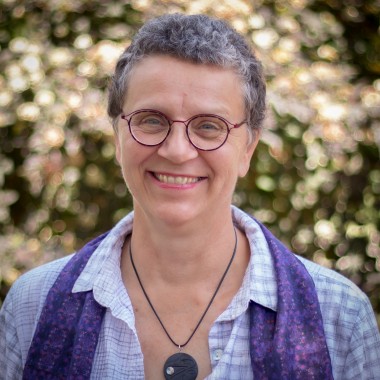Engendering Disability-Inclusive Development

About the Project
With the 2015 adoption of the Sustainable Development Goals (SDGs), world governments committed to leave no one behind. Yet the roughly 1 billion people with disabilities globally, the majority of whom are women and girls, face unique barriers that lead to poverty and exclusion. Women and girls with disabilities face systemic inequalities as a result of their multiple and intersecting social realities, which make them among the most marginalized groups in the world. In Canada and around the world, this is a strategic moment to tackle this challenge as: a) there is growing global recognition that achieving SDGs cannot be accomplished without having the inclusion and well-being of people with disabilities at the centre of policy implementation; b) the Canadian government argues that the best way for it to address poverty around the world is with a focus on gender equality and the empowerment of girls and women; and c) Canada has committed to inclusion and accessibility through its co-leadership of the Global Action on Disability Network, the launch of the Feminist International Assistance Policy (FIAP) and the 2019 adoption of federal accessibility legislation.
The Engendering Disability-Inclusive Development (EDID) partnership will build on established relationships with NGOs, policy makers, and researchers to improve the lives of diverse girls and women with disabilities by: 1) uncovering, co-creating and mobilizing knowledge about their struggles for and progress toward disability- inclusive development and 2) engendering and implementing disability-inclusive development policies that are critical to removing these barriers and creating the conditions for inclusion and participation. To achieve these goals, the partnership will use collaborative, community-engaged and participatory methodological approaches and complementary theoretical approaches--feminist, critical disability and global development studies, and intersectionality--to explore the diverse experiences of women and girls with disabilities across four study countries (Canada, Haiti, South Africa and Vietnam) that exemplify the challenges faced in low-, middle- and high-income country settings.
In order to achieve our goals, we will organize our work in three hubs. The Research Hub will conduct gendered and intersectional analyses of disability rights implementation and representation, support articulation of locally grounded insights, identify and investigate both common and distinct questions, and pinpoint cross-cutting themes and comparative patterns. It will undertake three complementary streams of research. In Stream 1, we focus on experiences with disabilities in the four study countries. In Stream 2, we examine transnational activities evident in treaty bodies, global partnerships and large international events. In Stream 3, we explore cross-cutting thematic and comparative perspectives. Anticipated outcomes include developing indicators of effective transnational and national human rights implementation and hosting early researcher and final project conferences. The Relationships Hub will build reciprocal and inclusive relationships between researchers, students, disabled peoples' organizations, development practitioners, and policy makers. Expected outcomes include creating virtual space for hosting reflections and developing development scholars who are more knowledgeable about disability, and disability scholars better equipped to engage on development policy. Finally, the KMb Hub will engage with policy and decision-makers; support peer-to-peer civil society learning and sharing; build experiential learning and training opportunities with students; and publish research in interdisciplinary, discipline-specific and community-engaged scholarship venues.